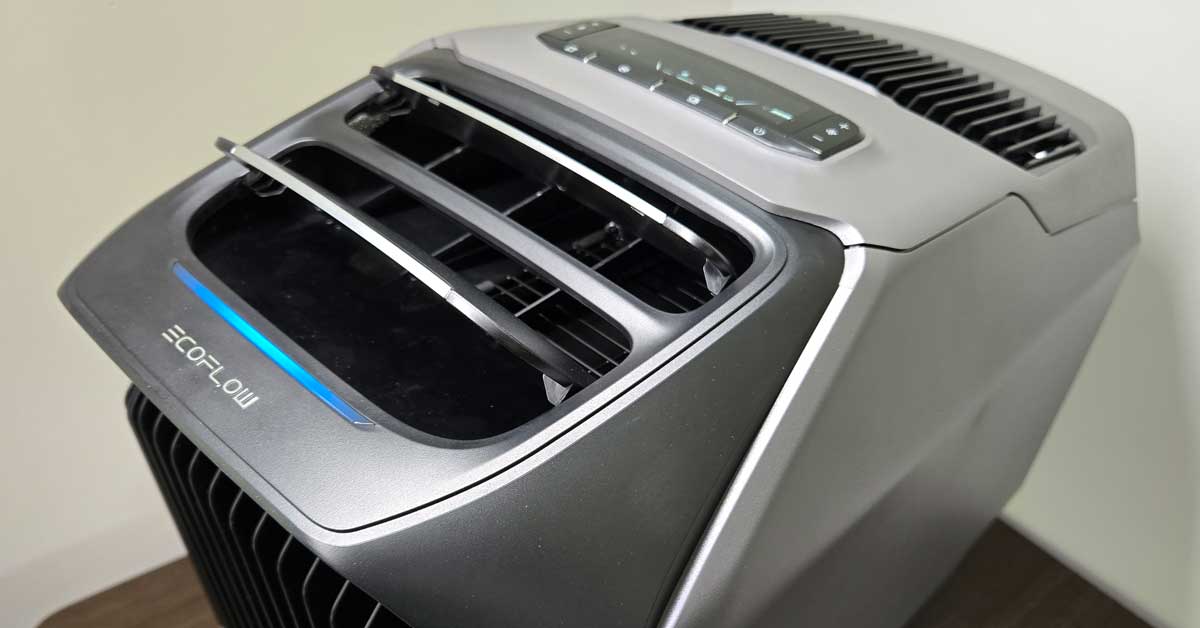I’ve tested dozens of portable air conditioners over the years, and most left me disappointed with their sluggish performance and clunky designs. The EcoFlow Wave 3, however, caught my attention with its bold claims of rapid cooling and cord-free operation capabilities.
After putting it through rigorous real-world testing in my camper van during two especially warm early-summer weekends, I discovered some surprising truths that’ll likely change how you think about portable cooling solutions.
Key Takeaways
- Delivers powerful 6100 BTU cooling and 6800 BTU heating with impressive 15°F temperature changes in just 15 minutes.
- Features intuitive controls via LCD display, eight physical buttons, and remote EcoFlow app connectivity for convenient operation.
- Operates efficiently pulling just 425W cooling/600W heating with optional 1024Wh battery providing 6-8 hours of cordless runtime.
- Includes new dehumidifier function and automatic temperature swing feature, surpassing previous Wave 1 and Wave 2 models.
- Heavy and bulky at 30+ pounds requiring careful installation planning for ducting and drainage setup considerations.
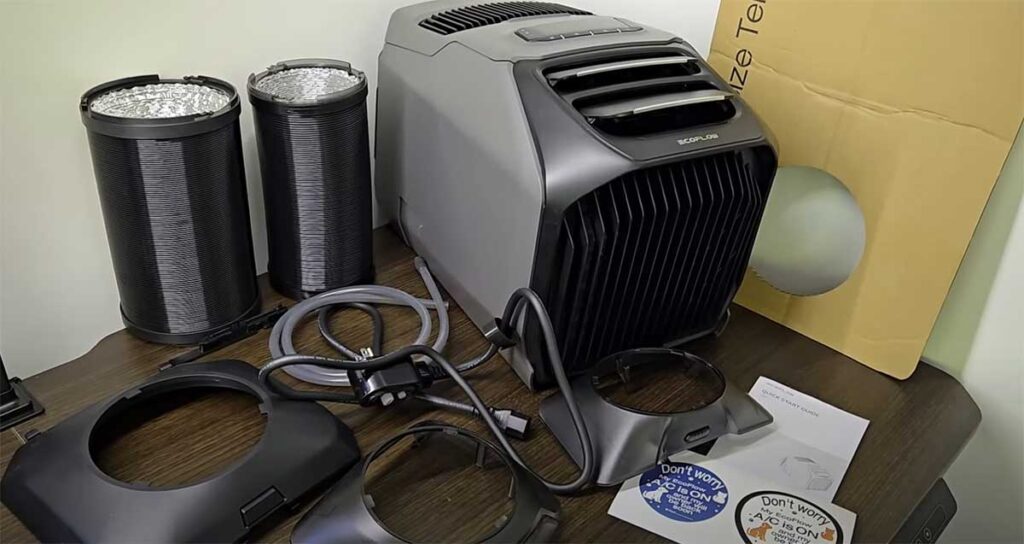
What I Liked
Incredibly Fast Cooling, Heating, and Dehumidifying
While most portable air conditioners struggle to make a noticeable difference in extreme heat, the EcoFlow Wave 3 impressed me with its raw power and speed.
The unit’s 6100 BTU cooling capacity delivers a 15°F drop in just 15 minutes, even under extreme conditions. That’s 20% more BTU than competitors, and I felt the difference immediately.
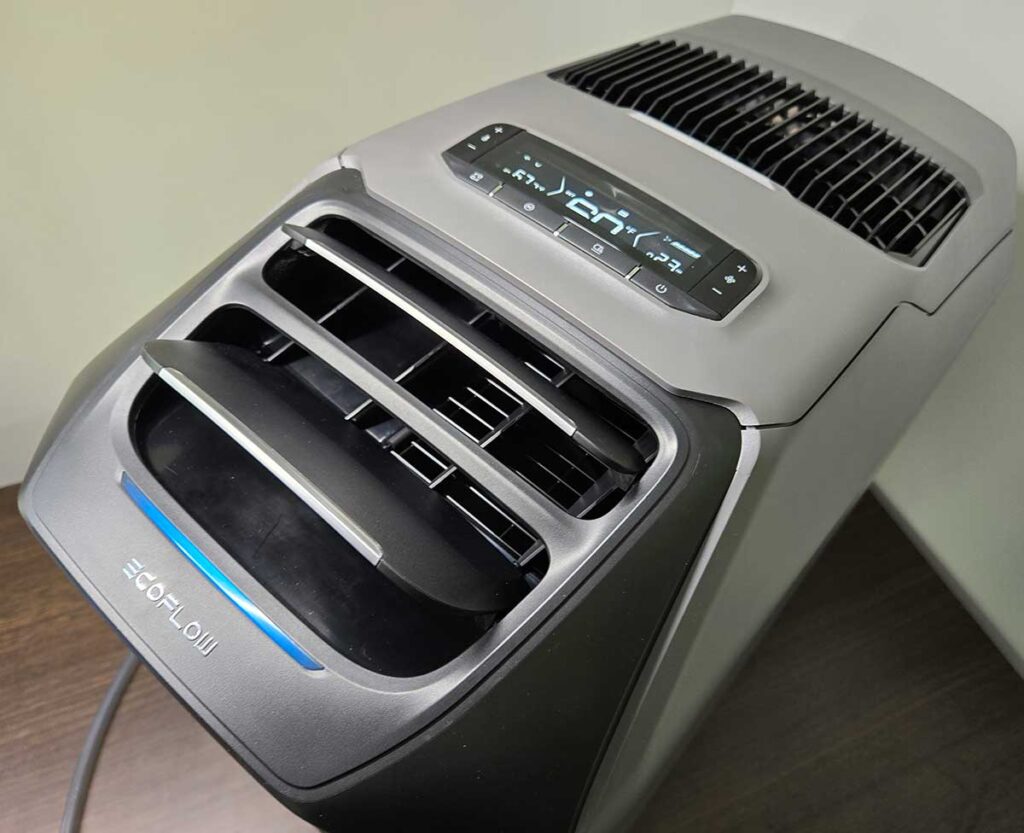
The heating performance is equally impressive at 6800 BTU, boosting temperatures by 17°F at the vents within 15 minutes.
I personally tested these claims during two weekend camping trips in 90 degree weather, and it checks-out. It delivers cool (or hot) air remarkably quick!
What sets the Wave 3 apart from its predecessors is the new dehumidifier function, which the Wave 1 and 2 lacked entirely.
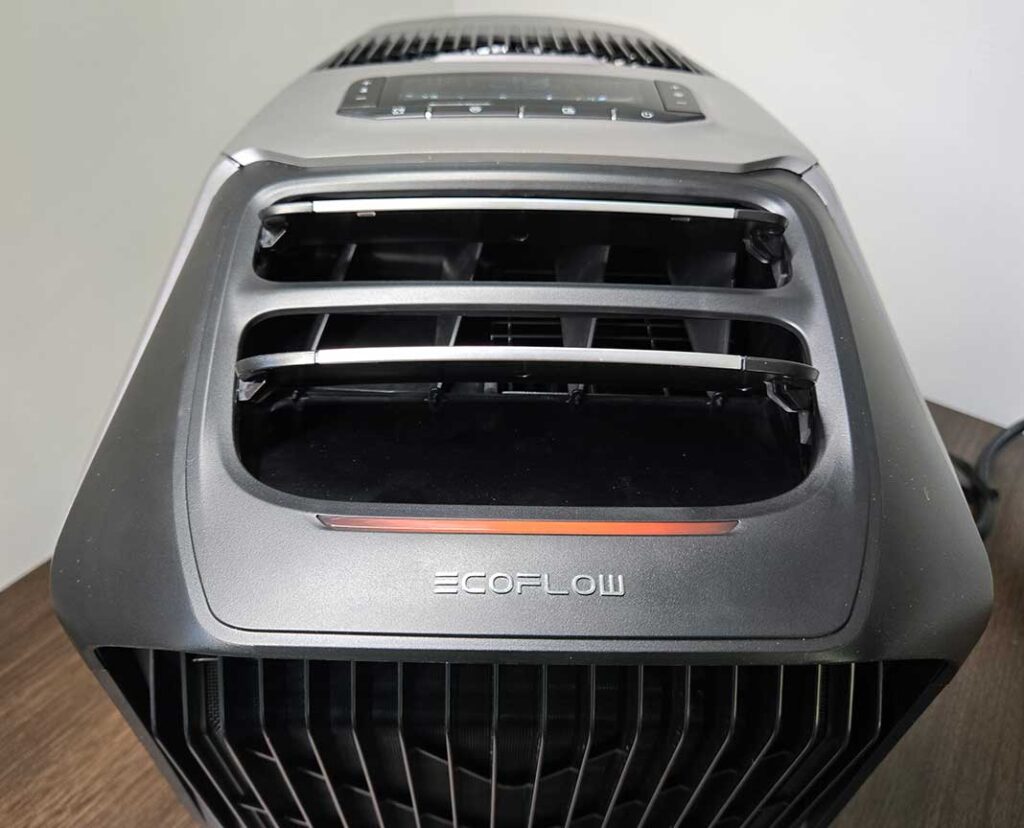
Also, the automatic temperature swing feature maintains perfect day-night balance in shifting climates, making it incredibly versatile for various weather conditions. This feature also helps to conserve energy use since you’re no longer required to manually adjust it when outside temperatures fluctuate.
Simple to Control
Using the Wave 3’s controls couldn’t be more straightforward. The built-in LCD displays the precise air temperature coming out of the machine, giving you real-time feedback on performance. It changes rapidly as the unit ramps up to deliver conditioned air in a matter of minutes.
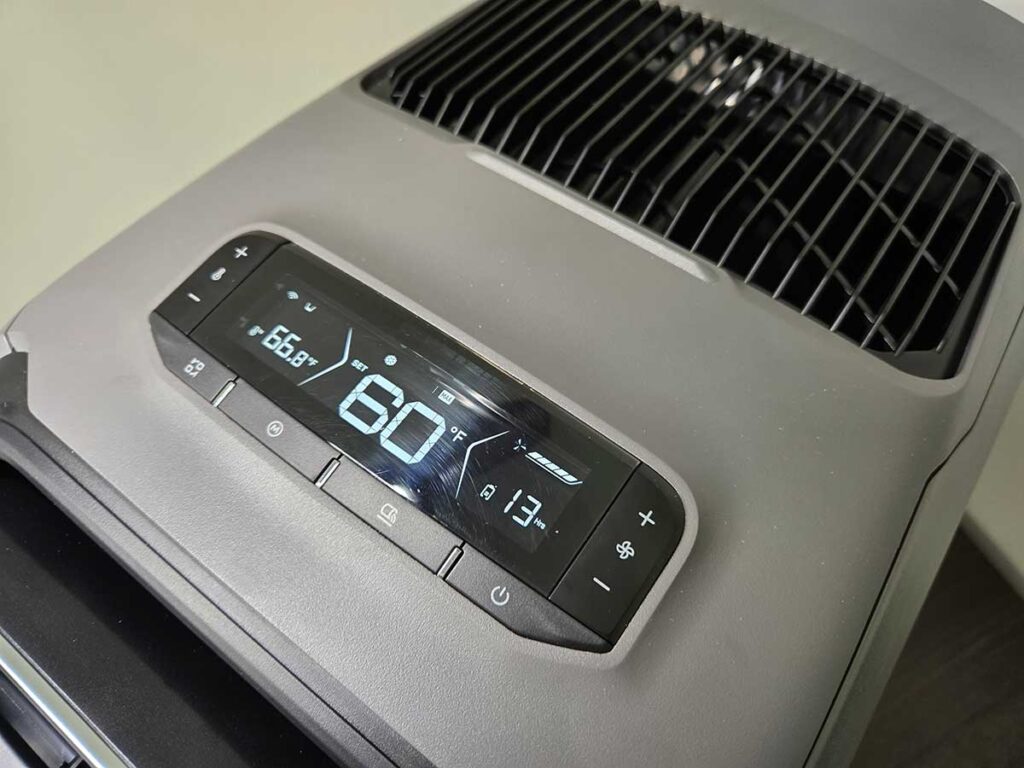
Eight physical buttons control everything you need – fan speed, temperature, mode, and other essential functions. The layout’s intuitive and easy to discern, so you won’t fumble around trying to figure out what each button does.
What I really enjoyed was the EcoFlow app connectivity. It works seamlessly with both iOS and Android devices, letting you control everything from your phone or tablet.
The app’s interface is clean and concise, responding smoothly without any crashes or lag. Having both physical buttons and smartphone control gives you flexibility whether you’re right next to the unit or across the room. Perfect for vanlifers or those planning on using it in their vehicle while camping.
Efficient Energy Use
Energy efficiency stands as one of the Wave 3‘s strongest selling points. During my testing, I recorded impressive power consumption figures that demonstrate its thoughtful engineering.
The unit draws just 425 watts during maximum cooling mode after 15 minutes of consistent operation, while heating mode requires 600 watts. I tested this with a power consumption monitor from an AC wall outlet, giving me an accurate representation as to how much energy it actually requires for normal operation.
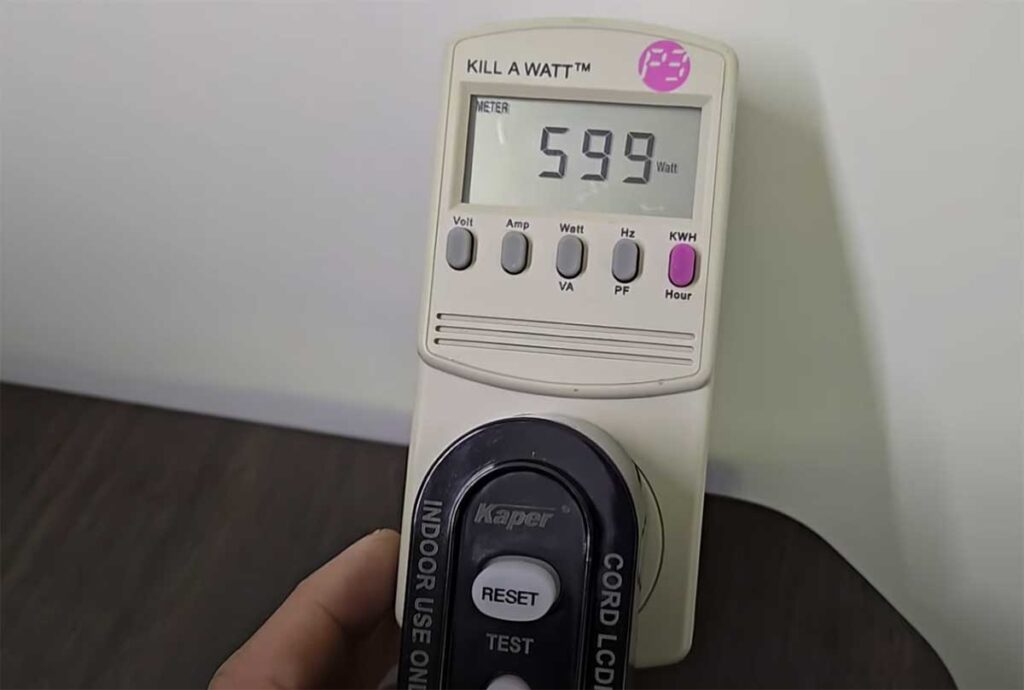
What’s especially remarkable is how efficiently the secondary modes operate – fan mode consumes only 70 watts, and dehumidifier mode pulls a mere 35 watts. It’s honestly very impressive.
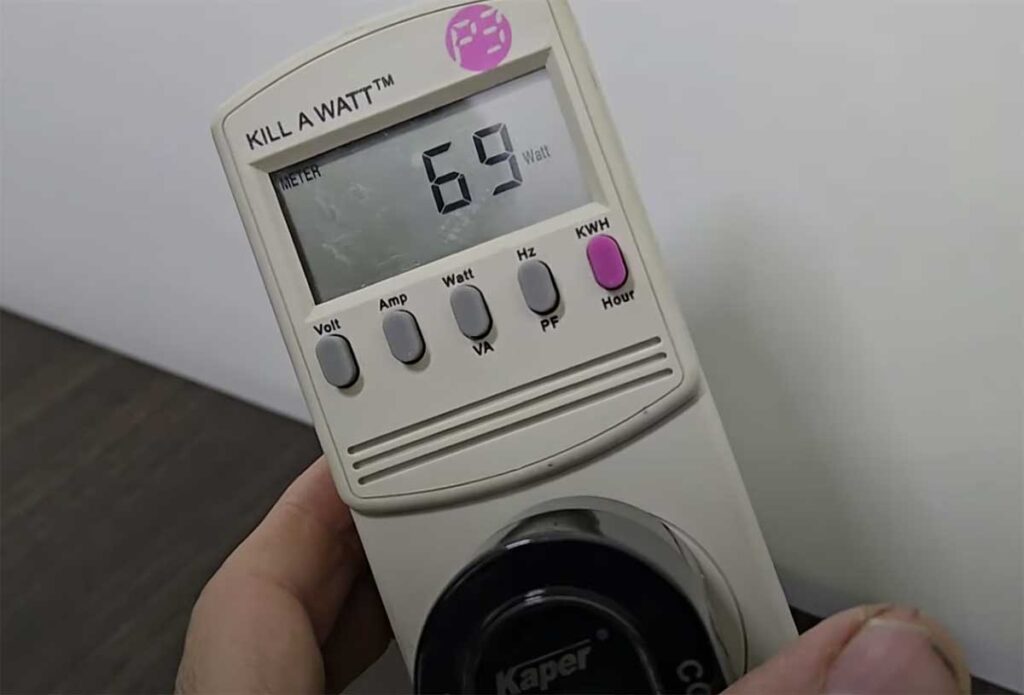
These numbers translate to real savings on your energy use, especially when you’re running it on battery power during camping trips or power outages. If you’re off-grid living, this is crucial for maintaining enjoyment without being “plugged-in” at all times.
Simply put, the variable power consumption means you can choose the right mode for your needs without wasting electricity on unnecessary cooling or heating capacity.
Add-on Battery
One of the Wave 3’s most compelling features is its optional 1024Wh add-on battery that transforms this portable AC into a truly wireless cooling solution. Although it’s a pricy upgrade at over $600, it’s definitely worth it if you’re planning on using it while camping.
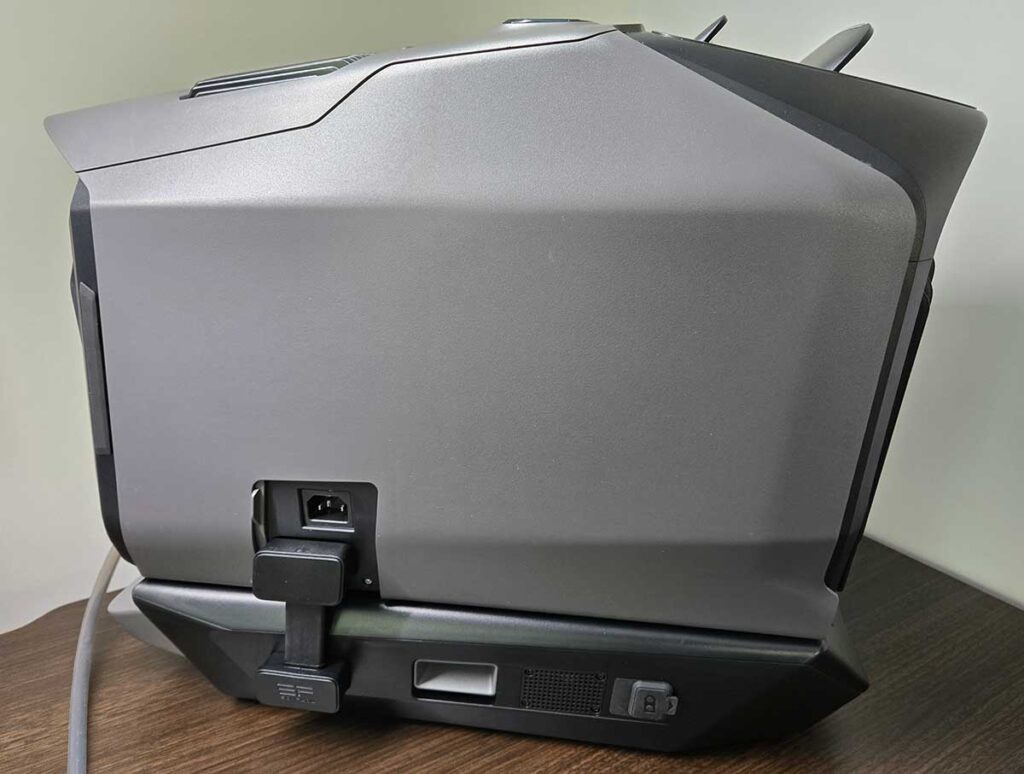
The battery slides onto the bottom and latches securely into position, creating a seamless integration that doesn’t compromise the unit’s portability. Once it’s latched, all you need to do is plug-in a short cable and you’re good to go.
I tested the battery extensively and found it delivers impressive runtime. On maximum cooling mode, it lasted 6-7 hours, while heating mode provided about 6 hours of operation.
You’ll get even longer runtime using Eco mode or less intensive functions like fan-only or dehumidifier settings.
What really impressed me was the charging speed. The battery recharges completely from an AC wall outlet in just 75 minutes, which is fantastic for quick turnarounds between uses. And while you can charge it via solar, your car, or from a different 12v source, the quickest way to top-off the internal capacity is from a wall outlet.
Pet Care Mode
Beyond just keeping yourself comfortable, the Wave 3 shows genuine consideration for your four-legged companions with its dedicated Pet Care Mode.
I can set a specific temperature range between 77°F and 113°F through the app, creating a safety net that protects pets from dangerous overheating. What impressed me most is how the system automatically kicks into cooling mode once temperatures exceed my preset threshold, then immediately sends an app notification to alert me.
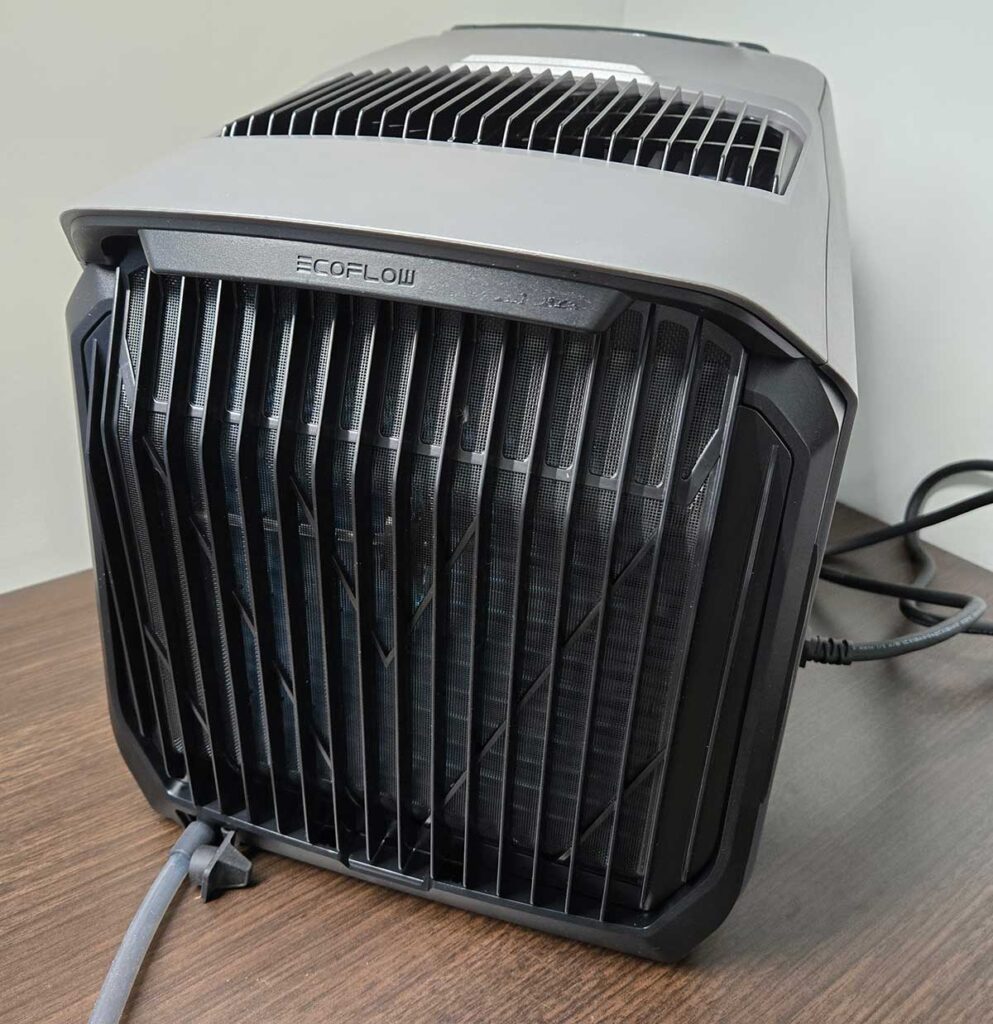
This feature’s especially valuable when I’m away from my RV or van but need to guarantee my pet’s safety. Rather than guessing whether conditions are comfortable, I’ve real-time monitoring and automatic intervention.
It’s reassuring knowing my furry friend stays protected from heatstroke while I’m exploring or running errands. Perfect for staying at a campground when you need to part-ways with your pets for a few hours.
Very Quiet Sleep Mode
How often have you been kept awake by a noisy air conditioner’s constant hum and cycling? The Wave 3’s sleep mode eliminates this problem entirely. Operating at just 44 dB, it’s about as loud as a quiet conversation, which means you’ll barely notice it’s running.
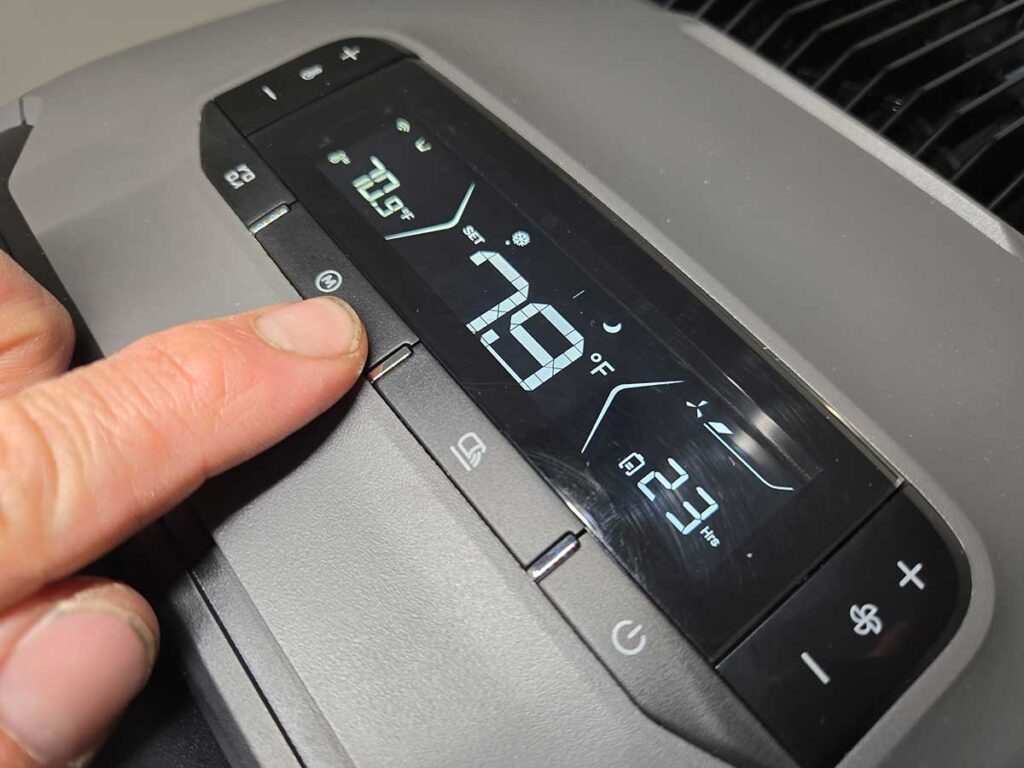
What impressed me most is how the unit maintains excellent cooling performance while staying whisper-quiet. The sleep mode doesn’t just reduce noise – it conserves energy while delivering constant, cool airflow throughout the night.
I’ve used it for several nights, and the consistent temperature control creates an ideal sleeping environment without any disruptive sounds. This feature alone makes the WAVE 3 worth considering if you’re a light sleeper who needs cooling comfort without noise pollution.
What I Didn’t Like
Still Bulky
While the Wave 3 delivers impressive performance, it’s still a hefty unit that can be cumbersome to move around.
At just over 30 pounds for the unit alone, it’s manageable for most people. However, once you attach the battery pack, you’re looking at an additional 21 pounds, bringing the total weight to over 50 pounds. This makes the Wave 3 quite difficult to relocate once you’ve got it set up.
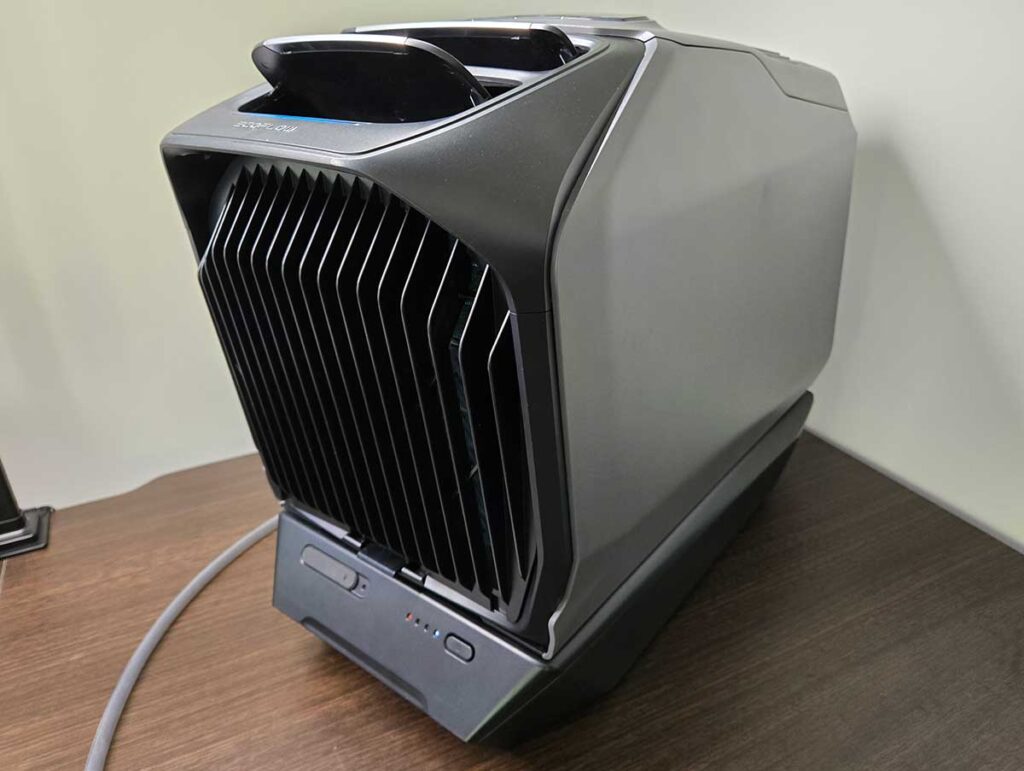
I understand EcoFlow likely faced engineering constraints given the unit’s extensive functionality – from its 6100 BTU cooling capacity to wire-free operation and smart features.
Still, the bulky form factor limits its true portability. While the dimensions remain similar to the Wave 1 and 2, I’d have appreciated a more compact design for easier transport between camping spots or rooms.
Setup Must be Planned-Out
The Wave 3’s installation process requires careful planning that can’t be done on the fly.
You’ll need to run at least two ducts outside your vehicle or tent for peak performance, which means scouting your setup location beforehand. The optional third duct for directing cold air adds convenience but increases the overall bulk you’re managing.
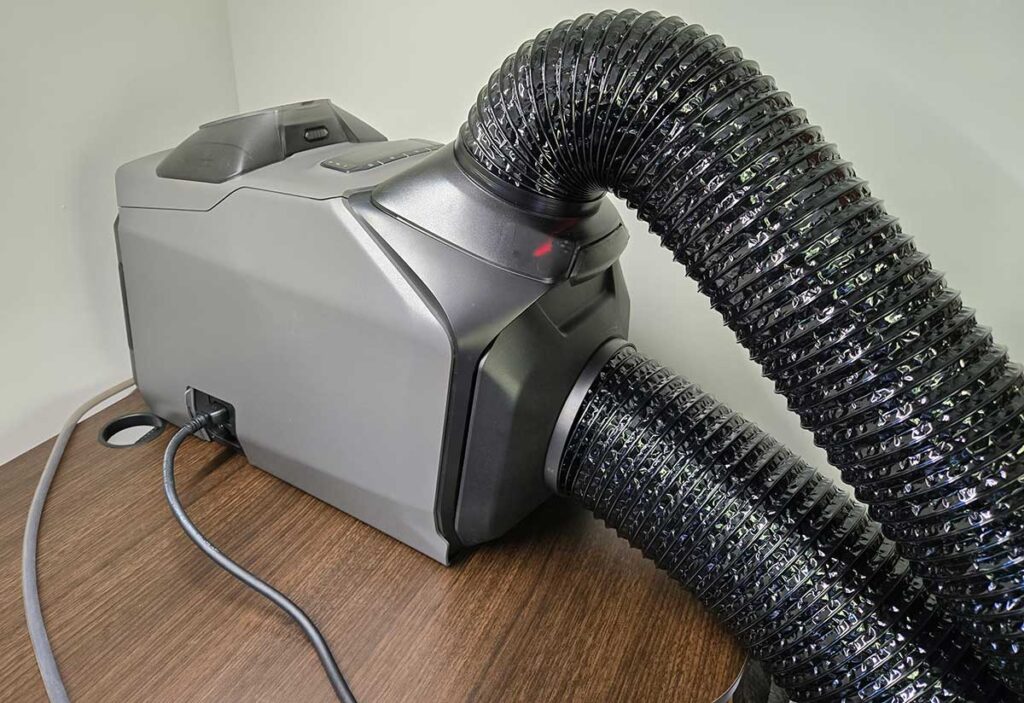
And there is a drainage aspect that needs consideration. You must connect the supplied hose to a large watertight container or sink to handle condensation from cooling and dehumidifying operations. This isn’t something you can improvise with a small cup or bottle.
I found myself constantly thinking about water management and duct routing before even powering on the unit. However, there is a “water drain alert” that can be had through the app. It’ll notify you when the water tank nears full and send you a reminder to drain it. That’s a neat feature that wasn’t available in the Wave 1 or 2.
Final Thoughts
I’d definitely recommend the EcoFlow Wave 3 if you’re seeking powerful, efficient cooling with the flexibility of battery operation. Its fast temperature control and quiet sleep mode make it excellent for camping or backup home cooling.
However, do keep in in mind that you’ll need to plan your setup carefully due to its somewhat bulky design and installation requirements. If you can work around these limitations, it’s a solid portable AC investment and truly better than any other portable AC unit I’ve tested in the past.
Meet Ry, “TechGuru,” a 36-year-old technology enthusiast with a deep passion for tech innovations. With extensive experience, he specializes in gaming hardware and software, and has expertise in gadgets, custom PCs, and audio.
Besides writing about tech and reviewing new products, he enjoys traveling, hiking, and photography. Committed to keeping up with the latest industry trends, he aims to guide readers in making informed tech decisions.

